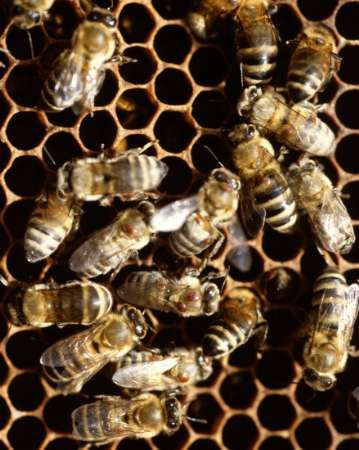Why Are Bees Important? UN Announces May 20 As World Bee Day

The United Nations recently declared May 20 as World Bee Day.
The resolution, proposed by Slovenia and supported by all EU member states, was adopted unanimously at a November meeting of the UN’s Economic and Financial Committee and the decision to introduce a World Bee Day was taken at the general assembly in New York on Dec. 20.
The day aims to raise awareness of the insects’ importance and warn about their dwindling numbers.
The resolution’s 155 co-sponsors, which include the EU, the US, China and Russia, all agreed to observe World Bee Day “through education and activities aimed at raising awareness of the importance of bees and other pollinators, the threats that they face and their contribution to sustainable development,” said a UN release on Oct 18.
What is it about these honey-making insects that they warrant their own day and how crucial are they to the planet?
We all know that any creature vanishing from this planet will throw off the delicate balance of the food chain. Bees and other pollinators sustain one third of all food produced globally. The UN's Food and Agriculture Organization (FAO) has estimated that 71 percent of crops depend on pollination to reproduce.
Bees alone pollinate over 170,000 plant species on this planet. Annual value of global crops directly affected by pollinators is estimated by the Intergovernmental Science-Policy Platform on Biodiversity and Ecosystem Services (IPBES) to lie between US$ 235-577 billion.
The insects are a key part of many ecosystems and therefore a good indicator of a healthy one.
But, in the last 50 years bee numbers have dropped drastically. There has been a very sharp drop in their numbers in Europe and across the world. In the areas with intense agriculture, their numbers are dwindling.
Because of shrinking habitats, large hives atop tall trees have become scarce which is reducing colony size and in extension overall numbers.
Nearly 75 percent of insects responsible for pollinating plants have died in Europe in just the last 30 years. That is a drastic drop in numbers in such a short span of time. Many reasons exist as to why they are dying in such large numbers but the major culprit is believed to be the rise in usage of neonicotinoid pesticides.
These commonly-used pesticides act on the nervous systems of insects and also affect their weight and reproductive systems. They are usually used to coat seeds before planting, but plants typically absorb less than 20 percent of the chemicals, leaving the rest to leach out into the environment.
Besides, the day will also be a reminder to how fascinating a bee colony is. The hexagonal divisions inside are simply called honeycomb structures. The queen bee is the only member of the bee family that lays eggs, producing up to 2,000 eggs in a day.
These extremely hard working insects have a single-minded dedication to collect nectar and bring it back to the hive. For a kilogram of honey, a bee must visit four million flowers and fly a distance equivalent to going around the Earth four times.
The UN chose May 20 as World Bee Day because in Slovenia, the day is known as the birthday of Anton Janša (1734-1773), the pioneer of modern beekeeping. Janša was the first teacher of modern beekeeping in the world, after he was appointed by the Habsburg Empress Maria Theresa at the first beekeeping school in Vienna.
© Copyright IBTimes 2024. All rights reserved.





















